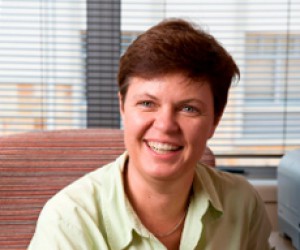Private higher education is becoming the study route of choice for an increasing number of young South Africans, in line with international trends.
Although in the past private education at tertiary level was often pursued mostly in instances where space at a public university could not be secured, or for courses of study other than degrees, that is no longer the case.
“We have seen a definite increase in applications from prospective students who elect to go the private route, partly because of the individual attention and smaller class sizes offered by many accredited institutions, as well as unique course offerings. Additionally, because of private institutions’ focus on work-readiness and post-qualification assistance in terms of placement, the reputation of these places of learning have grown significantly in recent years,” says Dr Felicity Coughlan, Director of the Independent Institute of Education.
Coughlan says there has also been a marked drop in the previously stubborn - but false - perception about comparative standards between public and private institutions.
“The public has become more aware of the fact that all registered institutions, regardless of sector, are required to meet the stringent Higher Education Quality Council accreditation requirements, as well as the equally stringent and onerous registration requirements of the Department of Higher Education and Training,” she says.
“The recent focus on the constrained admissions in the public higher education sector has generated much debate about alternatives for students. It is absolutely correct that the FET sector is one that is often overlooked by school leavers, and equally true that within the higher education sector, qualifications other than degrees are insufficiently considered.
“Absent from the debate, however, has been recognition of the fast growing - in size and reputation - private higher education sector. As with private schooling, and as in many developing economies throughout the world, the private higher education sector in South Africa provides exciting further study options for prospective students, and dramatically increases the scope of access.”
Coughlan says that the experience at all of the campuses of The Independent Institute of Education and many other private providers is that students have come to understand the value offered in the private sector and actively seek the smaller campuses, flexible modern curricula, innovative teaching and learning, models of student support and student life and focus on the individual that can characterise private higher education campuses.
She notes that, by its nature, private higher education will in some instances be comparatively more expensive than public higher education, as the Government has not moved in the same direction as other developing countries – such as Botswana - to fund the sector to make its offering more widely accessible.
However it would clearly be a fallacy to believe that quality is measured by the extent to which the taxpayer funds education, she says, and a direct fee comparison does not take in to account the other value propositions such as student support and high success rates during and after study. The suitability of the environment for particular students is not determined by who paid to build it, she says.
“Many public institutions in SA are leaders in the field of research and others focus on quality teaching or are excellent universities of technology. However that does not equate to them being the right environment for all students and all courses.
“To make the right decision about where, what and how to study, prospective students must start researching and receiving information about all their options, in a context which does not continue to pander to historic misconceptions,” she says.
“Choices about tertiary education must be based on a thorough assessment of the fit between personal aspiration, circumstances and the institutional choices available. And it is incumbent on all roleplayers – parents and guardians, teachers, counsellors and the media – to expose those considering further study to all available options, and to add private higher education to consideration sets as a matter of course, and not only when learners are not able to get in to public higher education.”
Gwen Bosman
http://www.achieveronline.co.za/articles/bbbee-codes-14174.html
http://www.achieveronline.co.za/articles/education-14176.html
http://www.achieveronline.co.za/articles/maths-and-science-14175.html
http://www.achieveronline.co.za/articles/skills-and-training-14177.html
http://www.achieveronline.co.za/articles/international-trend-14178.html






